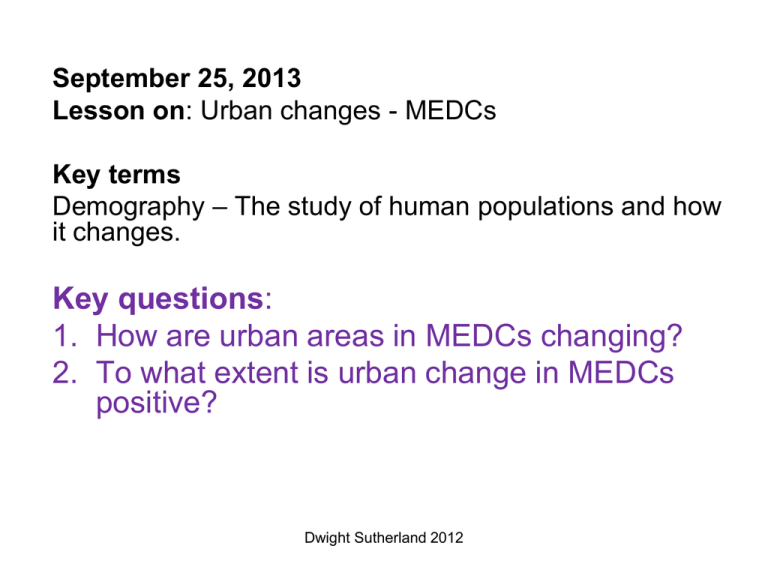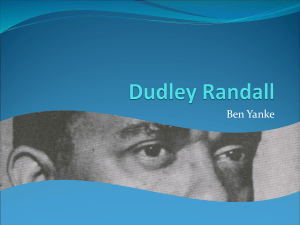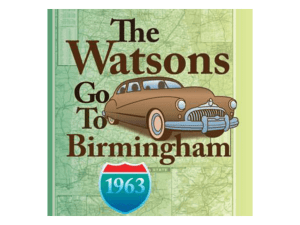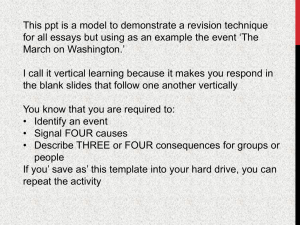Urban changes in MEDCs LESSON 4
advertisement

September 25, 2013 Lesson on: Urban changes - MEDCs Key terms Demography – The study of human populations and how it changes. Key questions: 1. How are urban areas in MEDCs changing? 2. To what extent is urban change in MEDCs positive? Dwight Sutherland 2012 Lichfield over the years 1610 1900 2000 Starter TASK: Describe the urban changes to Lichfield between 1900 and 2000. Dwight Sutherland 2013 Lichfield over the years 1610 1900 2000 Starter TASK: Describe the urban changes to Lichfield between 1900 and 2000. Urban areas change by: • growing eg. Shanghai • declining eg. Sheffield • changing functions eg. Birmingham change from an industrial city to a service sector city • their layout eg. From Linear to nucleated Dwight Sutherland 2013 FACT FINDING TASK: Read through the Birmingham case study in the textbook. Do your own case study on urban changes in MEDCs using Birmingham as an example. See example below. Case study: Urban changes in Birmingham (MEDC city) • Location: (Where is this place exactly?) • Key facts: (Population, main businesses etc) • Main changes since the 1950s and reasons for them: (How has the city changed environmentally, culturally, economically and even politically?) Dwight Sutherland 2013 (Optional) FACT FINDING TASK: Read through the Birmingham case study in the textbook. Do your own case study on urban changes in MEDCs using Birmingham as an example. See example below. Case study: Urban changes in Birmingham (MEDC city) • Location: (Where is this place exactly?) • Main changes since the 1950s: (How has the city changed?) • Causes of those changes:(Why did the city change?) • Impact of those changes: (What are the consequences of those changes?) • Management of those changes: (What is being done to deal with those changes?) Dwight Sutherland 2013 Main changes to Birmingham • One change to Birmingham over the last 50 years is an increase in immigrant population. 47% of Birmingham’s population is made up of ethic groups. The reason for this change is that after WW2 immigrants were encouraged to come to Birmingham to help rebuild the city. Since then other immigrants have come to be with families and to find jobs. This is a cultural change. Dwight Sutherland 2013 Fact check: List one change to Birmingham that is: • Social • Demographic • Economic • Environmental Dwight Sutherland 2013 Progress check TASK: Circle the causes of urban changes below in MEDCs like Birmingham. • • • • • • • • • • • • • • Counter-urbanisation Industrialisation Rural-urban migration Global shift of industries to LEDCs Urban-rural migration Growth of informal housing, businesses Urban decay International migration Increase social segregation Urban gentrification Sub-urbanisation De-industrialisation Increase rates of urbanisation and suburbanisation Urban renewal/redevelopment Dwight Sutherland 2013 TASK: In pairs discuss then the match the management strategy to effects of urban changes in Birmingham. MANAGEMENT STRATEGY BEING USED IN BIRMINGHAM EFFECT(s) BEING TARGETTED Investment in tertiary industries like Bull Ring shopping centre and Birmingham tourism. Council invest in redevelopment schemes such as new apartments in the city centre. Council offer cheap rental spaces for businesses. Council improve the quality of social housing in the city. The growth of Birmingham population leads to a need for overcrowding of houses in the city. Council funds and develops cultural programmes in the city (cricket matches between different groups in the city). Council invest in social programmes like education, community policing. Other: Dwight Sutherland 2013 Group discussion TASK: Discuss how effective the strategies being used in Birmingham are to address the changes. Dwight Sutherland 2013 Summary of key points URBAN CHANGES IN MEDCs Counter-urbanisation Sub-urbanisation Urban decay Urban gentrification Urban renewal/redevelopment Dwight Sutherland 2013









